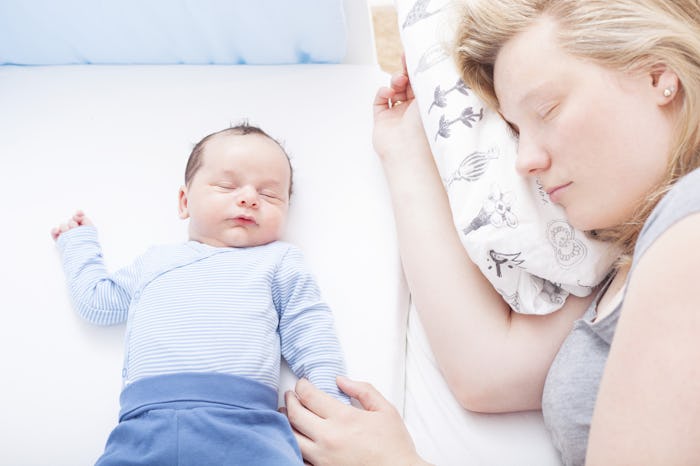Life

How The No-Cry Sleep Solution Affects Your Body
My daughter is almost 2 years old now, and I can still remember how it felt to hear her cry when she was a newborn. I definitely remember her cry when she was learning to fall asleep on her own, and how my entire body felt like it was on fire as a result of her vocal opposition to sleep training. So obviously I was a fan of the no-cry sleep solution. Most of us parents never bother to think about how the no-cry sleep solution affects your body, though, and that's a shame because, well, science is kind of incredible.
First things first, though: what is the no-cry sleep solution? It's a sleep training method invented by parent and author Elizabeth Pantley, designed for parents who want to sleep train their babies without letting them cry it out. It's designed to be a more gentle method than the now notorious and often debated crying it out, and obviously designed to avoid the crying that stresses most new, sleep-deprived parents out. According to The Baby Sleep Site, the no-cry sleep solution relies on parents being able to provide comfort and assurance to their baby during the sleep training process, staying in the room while the baby goes to sleep and after middle-of-the-night wakings.
The no-cry sleep solution regularly takes longer than other sleep training methods, such as graduated extinction, but for parents who squirm at the mention of "cry it out," the extra time it takes can be well worth it. According to Parents, Pantley's method for sleep training suggests parents identify their baby's sleep struggles and natural rhythms before attempting to fit their baby into a forced sleep schedule. The idea is, according to the same site, the baby will sort of lead the parents to and through what their natural sleep schedule would be, and, as a result, that sleep schedule will make it easier for baby to fall asleep peacefully.
While there isn't a boatload of scientists researching the physical effects of the no-cry sleep solution, scientists have managed to work out what hearing your baby cry does to your brain. According to Science News, hearing your baby's cries causes oxytocin in your brain to prime certain nerves to hear your baby more clearly. Researchers found a loop designed to help babies communicate with their mothers, saying, "Baby cries, oxytocin floods the mother’s brain, sound-sending neurons get better at recognizing cries, and mother grows more responsive to baby’s cry." It makes sense, doesn't it?
Obviously, the no-cry sleep solution doesn't mean that you'll never hear your baby's cry or allow this oxytocin loop to take place so you can greater meet your baby's needs. Instead, the no-cry sleep solution likely limits some excessive crying that many parents want to avoid while sleep training.